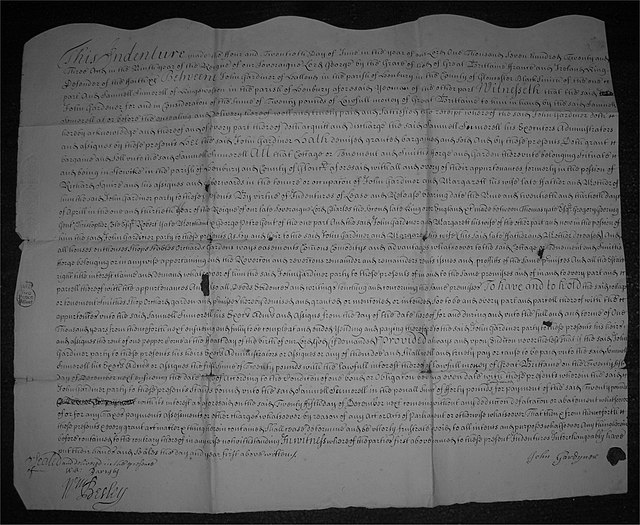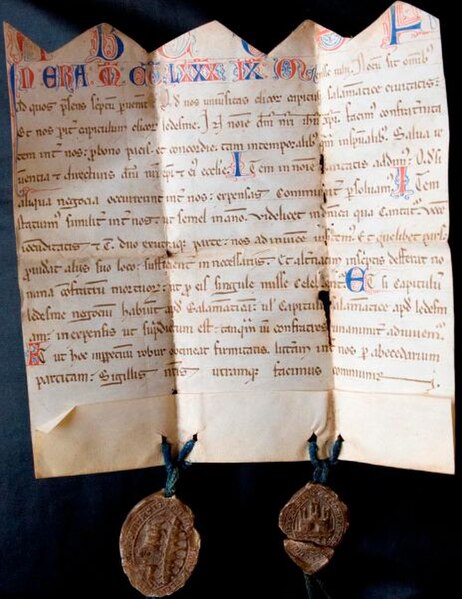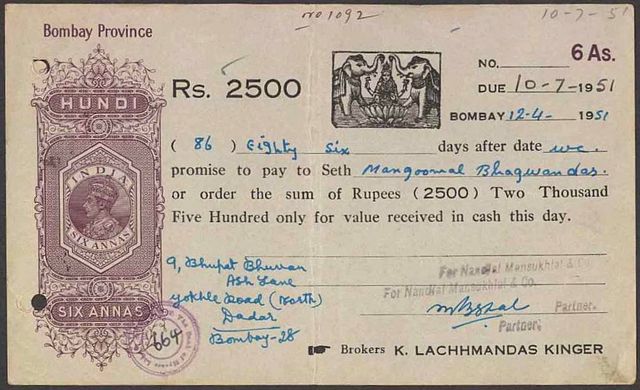An indenture is a legal contract that reflects or covers a debt or purchase obligation. It specifically refers to two types of practices: in historical usage, an indentured servant status, and in modern usage, it is an instrument used for commercial debt or real estate transaction.
Half of an indenture document of 1723 showing the randomly cut edge at the top
Charter of the Clerecía de Ledesma, 1252
Tripartite indenture between William Shakespeare and the estate of the vendor of New Place, confirming the transfer of ownership to Shakespeare. The third portion (the foot) was retained in the court.
A contract is an agreement that specifies certain legally enforceable rights and obligations pertaining to two or more parties. A contract typically involves the transfer of goods, services, money, or a promise to transfer any of those at a future date, and the activities and intentions of the parties entering into a contract may be referred to as contracting. In the event of a breach of contract, the injured party may seek judicial remedies such as damages or equitable remedies such as specific performance or rescission. A binding agreement between actors in international law is known as a treaty.
A Sumerian contract for the sale of a field and house in around 2600 BCE. As sedentary civilisations began to develop during the Bronze Age, contracts emerged as a necessary part of daily economic life.
A hundi for Rs 2500 of 1951, stamped in the Bombay Province with a pre-printed revenue stamp. Hundis represent one of the earliest iterations of modern negotiable contracts.
The Carbolic Smoke Ball offer
Hugo Grotius, one of the jurists credited with the development of Roman Dutch law







